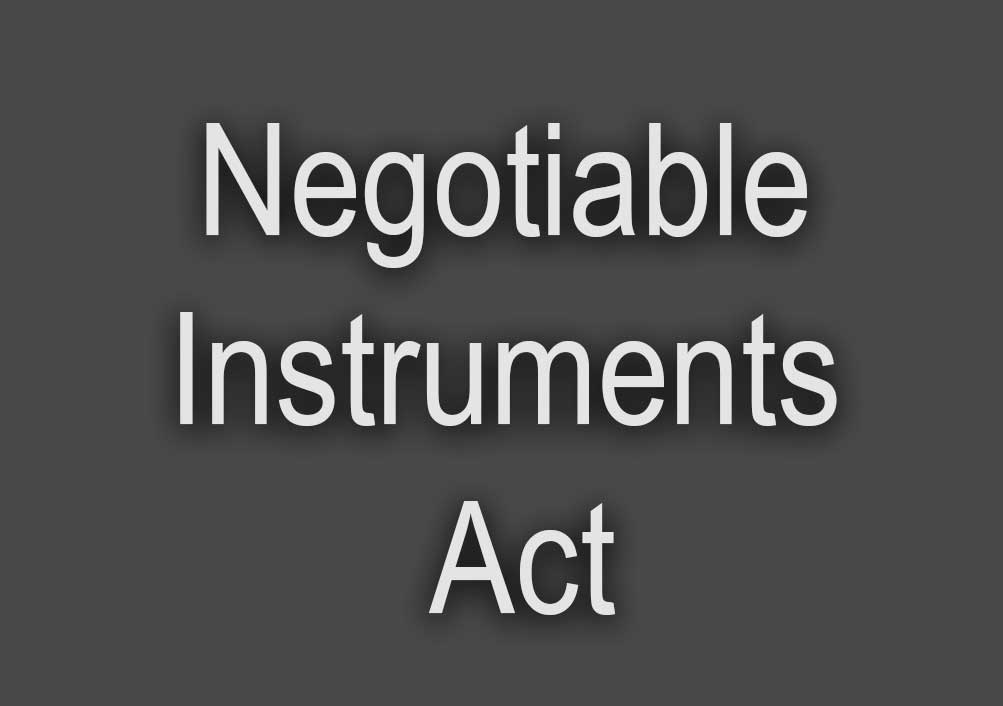In CRL.M.C. 702/2022-DEL HC- Sec.148 of NI Act stipulates period of 60 days within which fine may be paid; Applicability of this section will be extended to appeals arising out of complaint cases filed prior to 2018 Amendment: Delhi HC Justice Chandra Dhari Singh [13-05-2022]

Read Order: HARSH SEHGAL & ANR v. STATE & ANR
Mansimran Kaur
New Delhi, May 16, 2022: Reaffirming the established law that the applicability of Section 148 of the NI Act will be extended to appeals arising out of complaint cases that have been filed prior to the 2018 amendment, the Delhi High Court has opined that the bail or suspension of sentence does not stand automatically cancelled in cases where a fine or compensation has been levied on the appellant under such section and is not deposited by him as per the directions of the Court concerned.
A single- Bench of Justice Chandra Dhari Singh allowed the present petition instituted under Section 482 of Cr.P.C, filed for setting aside of the order passed by the Additional Session Judge and observed that the time period of thirty days granted to the appellant to deposit the fine was bad in law and illegal, as the provision mandates the time period of sixty days.
In this case, the complainant-Datamatics Pvt. Ltd. stated that the first accused- M/S Takshila Pvt. Ltd., second accused- Dinesh Sehgal and the third accused- Harsh Sehgal approached the second respondent for a short-term loan of Rs 5 crore and for the repayment of the said loan, the accused issued a cheque of Rs 5 crore which was returned on account of being dishonored with remarks “insufficient funds”.Thereafter, a complaint was registered under Section 138 of the Negotiable Instruments Act, 1881. In view of the same, the Metropolitan Magistrate ordered the second and the third accused were to undergo simple imprisonment of one year along with a fine of Rs. 7.5 crores.
In pursuance of the same, the accused approached the Court of Additional Sessions Judge. The ASJ passed an order wherein he suspended the order of sentence passed by the Trial Court for the period of pendency of appeal. Amid pendency of appeal, an application was filed by the second respondent under Section 148 and the ASJ eventually passed an order directing the accused to deposit a 20 % compensation amount in the form of FDR in the favor of the complainant. It was this impugned order that was assailed by the accused persons-petitioners before the present Court.
Rejecting the argument that Section 148 is not retrospective, the Bench referred to the judgments of the Apex Court and reaffirmed that Section 148 has been held to be retrospective in nature and having applicability over complaints that have been filed prior to the 2018 amendment
Next, the Court opined that in the instant case, the ASJ did not pass a final order or judgment when he pronounced the suspension of sentence of the accused and thus the restrain under Section 362 of the Cr.P.C. did not exist against the order. However, the Court noted that the ASJ intervened with the basic relief granted to the appellant by suspension of sentence and reformed it completely by passing the impugned order. It was further stated that by virtue of Section 148 a period of sixty days should be granted to the appellant deposit the amount of compensation, thus imposing a period of one month was illegal and unsustainable in the eyes of law.
Thus, in light of the above stated observations and findings, the Court observed that the question of law with respect to application of Section 148 of the NI Act was correct, as the same can be applied retrospectively. However, the impugned order passed by the ASJ was unsustainable on two grounds primarily, firstly the time granted to deposit the compensation is sixty days and not thirty days, secondly imposing the condition of vacation of suspension of substantive sentence in the review order, in the absence of extraordinary circumstances curtained the liberty of the appellant completely and thus the order passed was erroneous and illegal. Accordingly, the petition was allowed.
Sign up for our weekly newsletter to stay up to date on our product, events featured blog, special offer and all of the exciting things that take place here at Legitquest.




Add a Comment